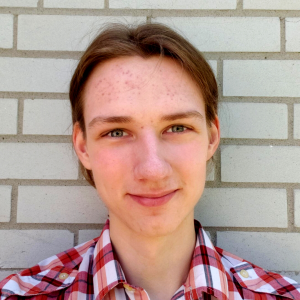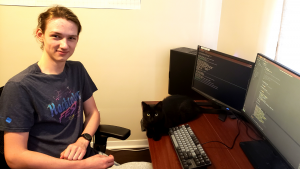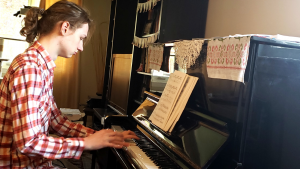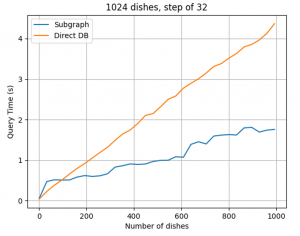Anatoly is going into his second year as an undergraduate student at the University of Toronto. He specializes in Mathematics, along with a Major in Physics and a Minor in Computer Science. Anatoly was born in Moscow, Russia, and immigrated to the Greater Toronto Area in 2011. He loves programming, collaborating on math assignments with his friends, designing video games, and playing piano.
What made you decide to participate in SURP?
I have been looking for ways to apply my knowledge and passion of mathematics and computer science to other fields for a while, and SURP also seemed like an amazing opportunity to introduce me to the world of academia. I was also looking forward to the professional development opportunities offered by SURP, as well as to further my knowledge of astronomy with the Astro 101 seminars.
What is your favourite thing about SURP?
I have greatly enjoyed and benefited from the guidance and mentoring that I have received from my supervisor, Dr. Adam Hincks, and working with him has been a pleasure thus far. I also found the professional development seminars to be very helpful by introducing me to strategies to better balance my work life with my personal life.
Can you tell us about your research project?
My project, under the supervision of Dr. Adam Hincks, is to create a layout database for managing hardware for the Hydrogen Intensity and Real-time Analysis eXperiment (HIRAX). HIRAX is an upcoming experiment consisting of an interferometric array of radio telescopes in the Karoo region of South Africa, which aims to study the evolution of dark energy and dark matter by looking at the 21-cm line produced by neutral hydrogen. We want to keep track of all the components in the observatory, as well as to go back in time to see how the site looked like then.
My goal is to determine how this data can be best represented with a graph structure, and to create a web interface along with a Python API that communicates with this database.
Can you explain how SURP has perhaps been different from your undergrad work?
There is much more freedom and liberty when it comes to SURP. Research is very open-ended, meaning that you aren’t given a list of questions to answer, so you must discover new things yourself. SURP has also been much more relaxing and refreshing than undergraduate work. The lack of deadlines at first seems like it would reduce my output, but I noticed that, due to the lack of stress, I’ve become more motivated and started to enjoy my work much more. I’ve also received much more guidance from my supervisor than I would from my instructors in my undergraduate courses.
What are your plans for the future?
I plan to pursue a PhD likely in mathematics or computer science and hope to continue my academic career afterwards. Aside from academics, right now my main goal is to learn Ballade No. 1 in G Minor by Frédéric Chopin.
For more 2021 SURP Student Spotlights, visit dunlap.utoronto.ca/training/surp/
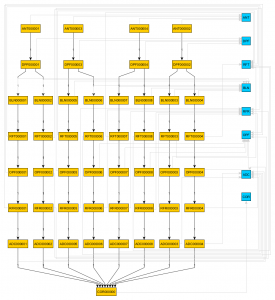
A 4-dish model of the experiment represented with a graph, where yellow vertices represent components, and the blue represent their types. Credit: Anatoly Zavyalov.

